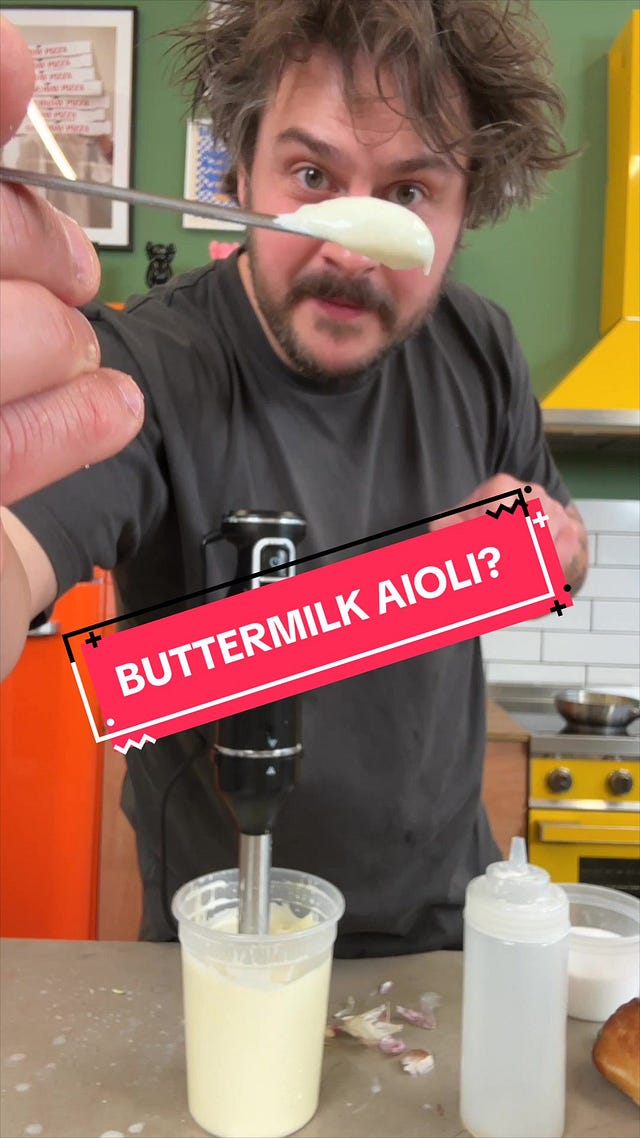
 Tiktok failed to load.
Tiktok failed to load.Enable 3rd party cookies or use another browser
First, a few housekeeping items:
I do a bunch of consulting work in our industry, focused on thought leadership, content strategy, speechwriting, etc. If your company may need help in this realm in 2024, please reach out to mike@shieldsstrategic.com.
I’m also looking for sponsor(s) for my podcast Next in Media and this newsletter for next year. If you’re interested, let’s talk - mike@shieldsstrategic.com.
The average US adult spends nearly an hour a day on TikTok. Kids and teens spend close to a movie’s worth of time every 24 hours watching videos on the app.
Despite these gaudy numbers, advertisers- in particular media buyers - remain somewhat unimpressed by TikTok. In fact, if there is one thing they agree on, even in this age of highly diminished linear returns - is that TikTok is not is TV.
Not even close.
A few weeks ago, I spent some time at a fairly CTV-centric media gathering in Los Angeles, and let’s just say TikTok wasn’t a big topic of conversation. The crowd was much more interested in breaking down currency wars and cross platform IDs than talking about the Chinese-own mega app - let along Instagram, Snap, etc.
YouTube found its way into the conversation, mostly because so much of its viewership occurs on actual TV sets. That counts - to a degree - but phones, algorithms, forget it.
“It’s just scrolling.”
“The attention is not anywhere near the same.”
“Nothing is as immersive as highly produced quality TV content” As in real TV.
I’m not surprised by the efforts of sales executives at major TV media companies to paint anything that isn’t a pricey sitcom, drama or live sportscast as less than TV. But I was a little thrown by so much of the same thinking from the heads of investment at major media buying agencies.
During an appearance last week on Matthew Belloni’s The Town podcast, Recode Media’s Peter Kafka was talking about the supposed importance of the ongoing battle to own the TV operating system - and how things have changed. “When they were talking about this for decades, they weren’t imagining TikTok and YouTube,” said Kafka. The ‘they’ in this case is Hollywood studios, but he may as well have been talking about the broader media buying and selling executive suite.
“If you look at or talk to any teen or tween, this is totally irrelevant. Because the portal for them is TikTok slashYouTube.”
Of course, if you branch out of the ‘TV buyer’ market, you’ll encounter a completely different mindset and point of view (as much as agencies and brands claim to be ‘video centric’ they are not.)
I had Ryan Detert, co-founder and CEO of social agency Influential on my podcast this week, and he spoke about TikTok’s prominence among young consumers, and within social media budgets.
Detert acknowledged that some marketers are gathering information about TikTok by watching others, not actually using the product - which can cause disconnects.
“They get the power,” he said. “They don't get the activation portion….but because most CMOs have kids that say, ‘hey, dad or mom, I'm on this all day long. I don't watch your linear television with you. So I have something to think about. And this is my favorite person I emulate.’ And they see it's a creator.”
“They think, ‘Hey, I need to get that person into my campaign.’ That’s the groundswell, it's making CMOs and SVPs go. ‘We can't ignore this.’”
I think this is where many media buyers are today: sure TikTok is huge, but is the attention a consumer provides while watching his or her favorite show, or a huge game, the same as when you totally zombie out and watch TikTok for a half hour? How can ads be as effective within a feed vs. a fully immersive show?
I get the argument. It sure seems different - but really, I’m just guessing. I’m not on TikTok every day.
If I’m parent company Bytedance, I go out and commission some research on this, to try and prove scientifically that TikTok attention/absorption is equally as valuable as TV - or even more. Not that they’re asking me, or need that much help.
After all, depending on what source you look at, TikTok is set to pull in anywhere between $6.9 billion to $13 billion this year. Detert estimated that TikTok is responsible for roughly a third of his clients spending - on social media to be specific.
“The majority of the spend in the social sphere through creators is a mixture of meta, TikTok, and Google YouTube,” he said. I'd say TikTok at any given time is probably a third of the spend happening from these brands…That's massive considering that they're up against and getting market share from Meta and from Google. So they're significant. It's every, most every plan has them on it. They're not getting all the money. They're getting a portion of it.”
The issue, if there is one, is what portion of what budget does TikTok ultimately deserve?


